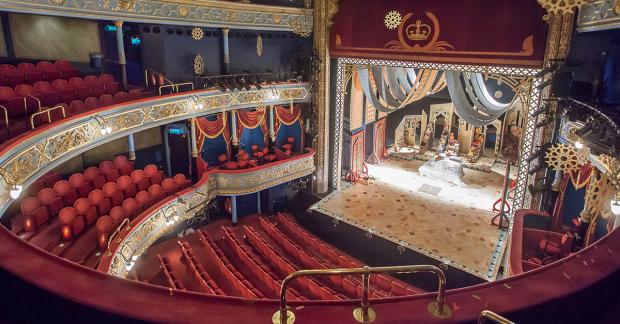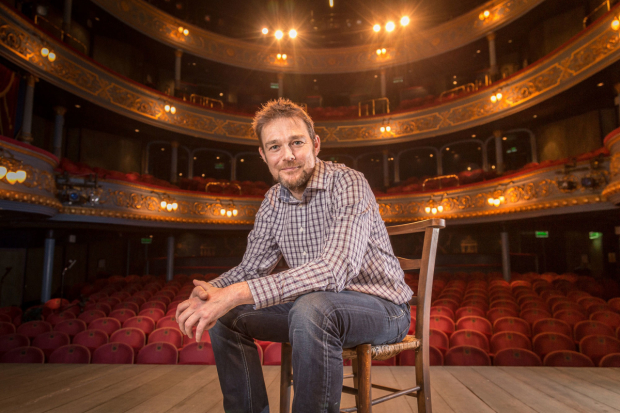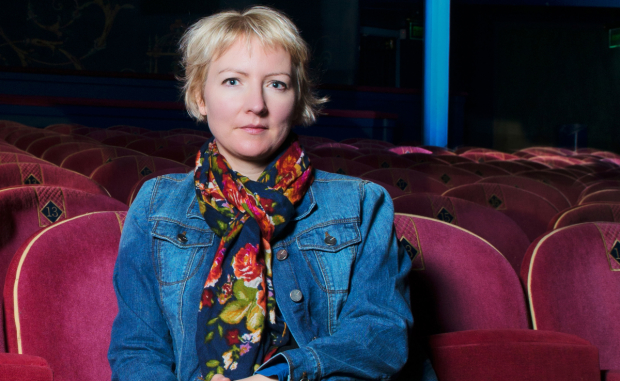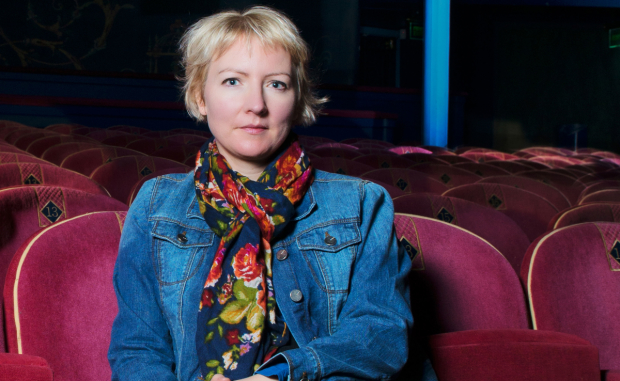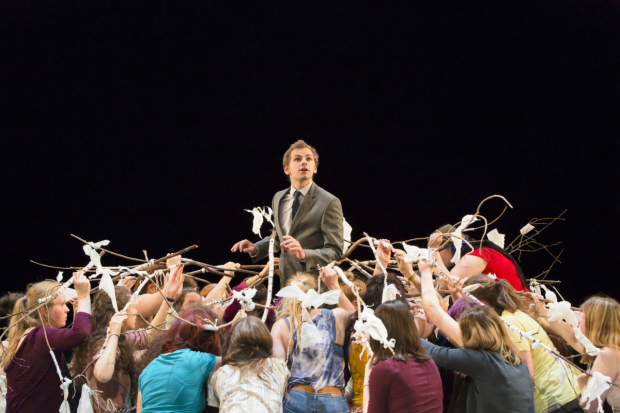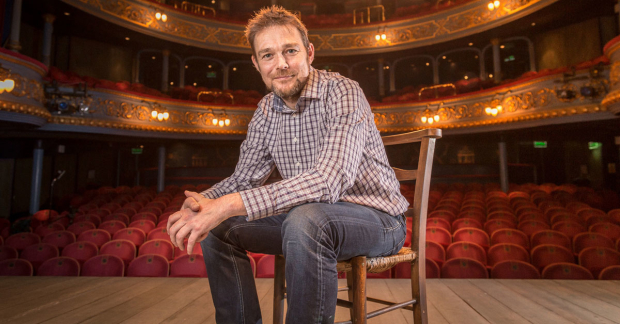Review: The Duchess (of Malfi) (Lyceum)
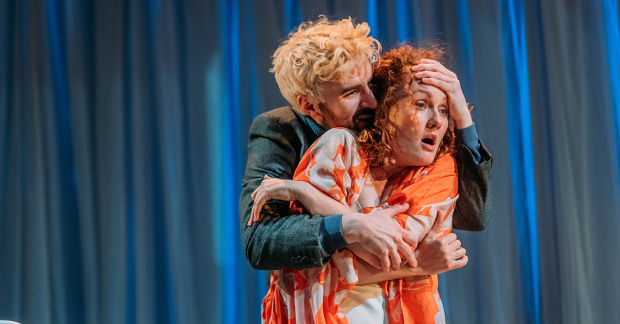
© Mihaela Bodlovic
With their crude plots, one-dimensional characters and ridiculous body counts, I've always thought it pretty bizarre that we still watch Jacobean tragedies. Most of them are daft-as-a-brush murder fests, with simplistic messages that would make a propagandist blush.
That is exactly why I was excited to see what Zinnie Harris would do with John Webster's The Duchess of Malfi. Harris' new version of Webster's most famous play tries to liberate it from its imprisoning tropes and place it instead in our #MeToo era; and it just about succeeds.
Kirsty Stuart's Duchess is a life-force of energy, blazing with independence and individuality right from the opening scene, her bright red dress burning into the retina against Tom Piper's austere white stage sets. She tells (warns?) Antonio, her new husband, that she sings at parties, wears colourful dresses and her hair however she likes, establishing a joie de vivre that's a critical part of Stuart's engrossing performance. This Duchess won't be pushed around and, much more than in Webster's original, she's determined not to be defined as a victim.
Implacably, however, she is worn down by the power of the men around her. Her secret marriage and pregnancy put her into the power of her selfish brothers, and she is unable to escape their malevolent revenge, despite being by far the most proactive character in the drama. Moreover, it's her identity, not her actions, that's the principal cause of their vengeance: "your sex is the source of evil" they tell her, in a grimly effective torture scene.
Harris' flair, however, is to poke fun of this patriarchal stance even as she depicts it. The Cardinal stops for fellatio while preparing mass, making a mockery of the conventional sources of authority. Ferdinand, beautifully played by Angus Miller, is an overgrown baby who fetishizes his own childhood and doesn't understand the emotions unleashed in him by his sister. He whittles away at a toy plane and plays with a balloon while asking his brother to calm him with their childhood lullaby, and the scene where he cradles the Duchess's twin babies is genuinely creepy. Borsola, on the other hand, becomes a sympathetic figure, haunted by his own past, who raises questions about how far he is responsible for his own evil. Antonio, on the other hand is an ineffective dandy, pointing up how much his wife holds the power in their household.
Not everything works. There's a pretty stark tonal disconnect between the two halves, the second being almost unremittingly grim, despite the ritualistic music that finally liberates all the ladies; and Harris doesn't quite know what to do with the smaller characters of Delio and Julia, who could have disappeared completely. Nor can she escape from the absurd pile of corpses that ends the play. Nevertheless, this show's performances are top notch, and Harris reinvents the play in a way that I found compelling and which made me re-evaluate its place in canon. Well, almost.



